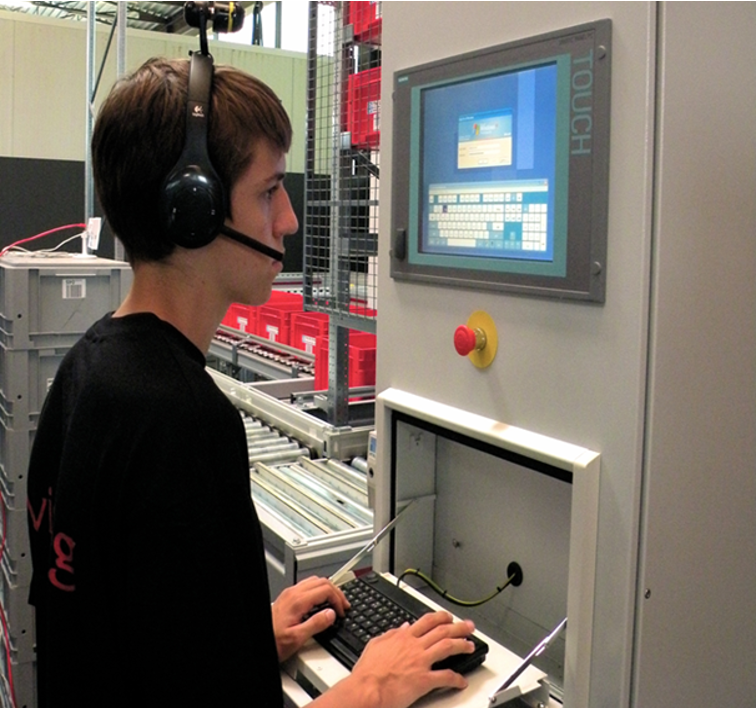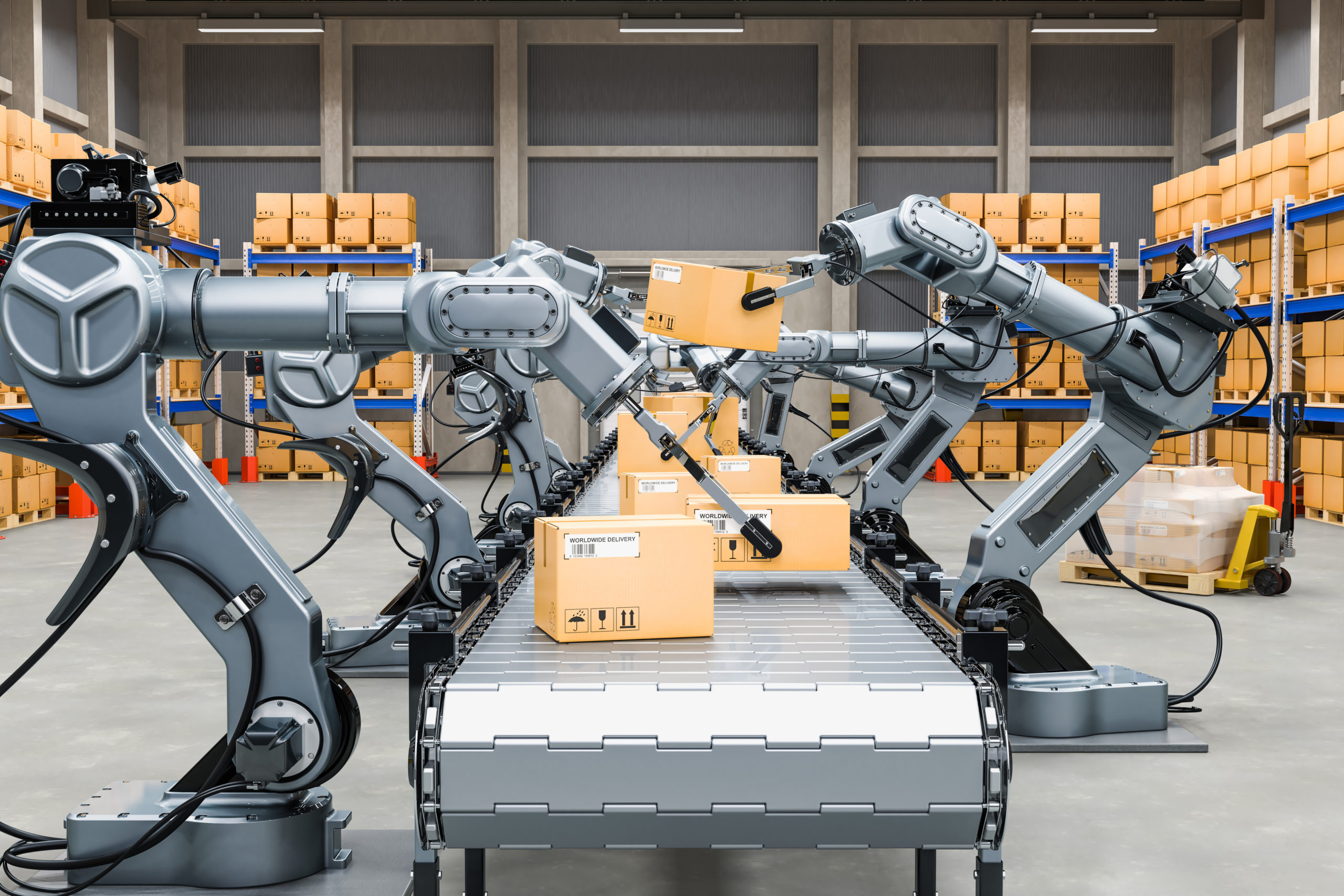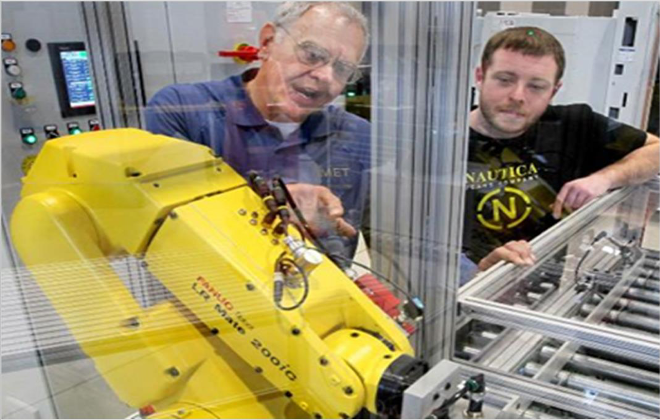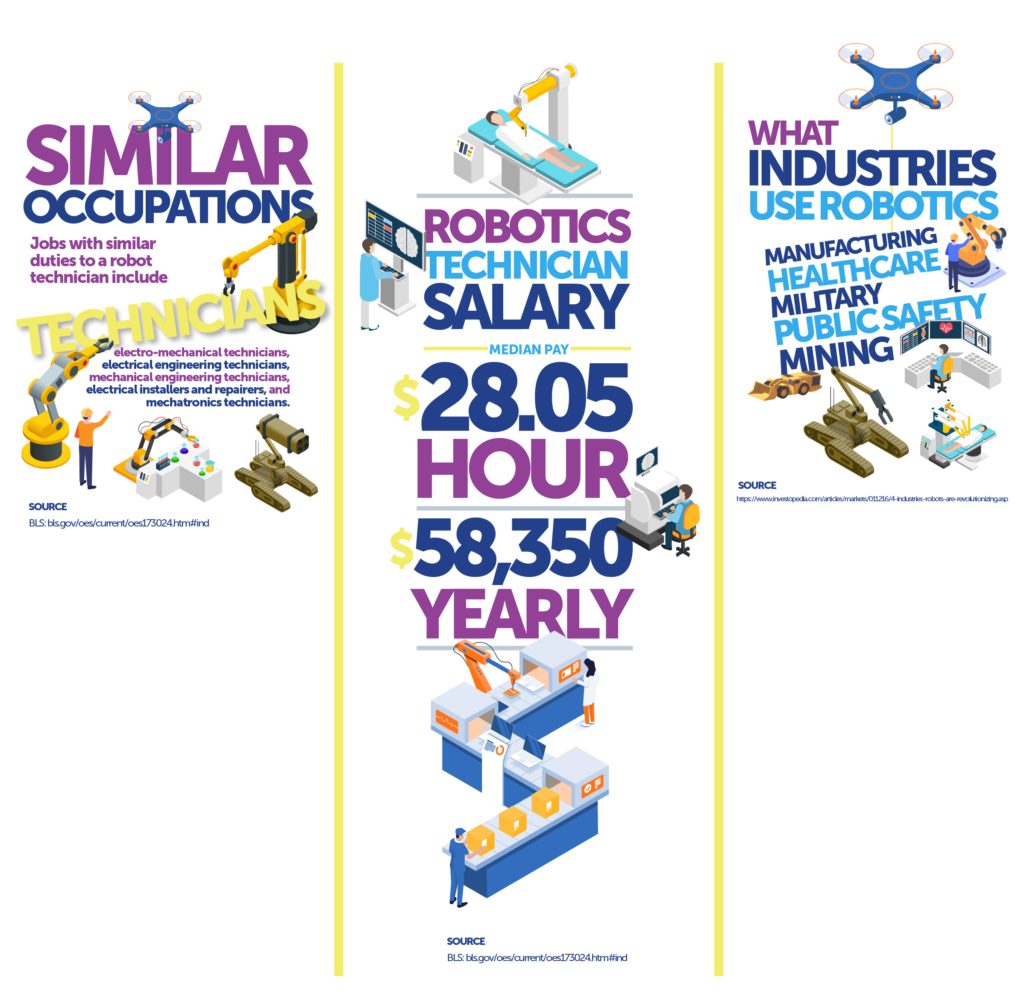Mastery of the core competencies of material handling at the front-line
Certified Logistics Technician (MSSC CLT)
A certified logistics technician is an essential member of the supply chain automation team. Competent certified logistics technicians are in demand across many industries by companies that need skilled front-line workers to extend their national and global reach by linking factories, suppliers, and customers.
Logistics technicians work in fulfillment centers, warehouses, distribution centers, and factories, and are involved in receiving, packing, shipping, tracking, and processing orders. They work with management and team members on daily operations of logistics systems, warehousing, distribution, and ensuring freight is processed efficiently to maximize product service levels.
For those who like working in a fast-paced environment that involves physical work, the MSSC Certified Logistics Technician (CLT) certification program provides the accreditation needed to pursue this career. MSSC training assists workers in finding higher-wage jobs and helps ensure employers their workers are capable of increasing the company’s productivity and competitiveness.
In an era of swelling college debt and employers’ need for specific job skills, industry certifications are enabling many more Americans to secure good-paying jobs in high-demand occupations that do not require a college degree. This online training program includes a stackable certification and in-demand skills needed for long-term career paths in supply chain logistics.
MSSC Training: Mastering the Core Competencies of Material Handling at the Front-Line
Logistics related companies need a knowledgeable, problem-solving workforce that can keep pace with rapidly changing technologies and processes. The MSSC Certified Logistics Technician (CLT) certification program recognizes through certification, individuals who demonstrate mastery of the core competencies of material handling at the front-line (entry-level to front-line supervisor) through successful completion of the certification assessments.
The industry-recognized, nationally portable and stackable CLA and CLT credentials help prepare individuals for careers in the rapidly growing and changing world of global supply chain logistics.
The MSSC CLT program consists of two parts:
- Foundational-Level Certified Logistics Associate (CLA) Certificate
- Mid-Level Technical CLT Certification (before sitting for the CLT assessment, candidates must have a CLA Certificate)
The certified logistics technician program covers a wide range of skills necessary for success in the logistics industry:
- Product receiving
- Product storage
- Order processing
- Packaging and shipment
- Inventory control
- Safe handling of hazardous materials
- Transportation mode evaluation
- Dispatch and trucking operations
- Measurement and metric conversions
Individuals demonstrate their understanding of the core skills and knowledge through two assessments based upon MSSC’s industry-defined, nationally validated skill standards. This assessment contains 85-90 multiple-choice questions, and MSSC strongly recommends that individuals be at 8th-grade math and 10th-grade reading level.
The nationwide Manufacturing Skill Standards Council (MSSC) System, based upon industry-defined and federally-endorsed standards, offers entry-level and incumbent workers the opportunity to demonstrate that they have acquired the skills increasingly needed in the technology-intensive jobs of the 21st century. The CLT Certifications set the quality standard for front-line technicians in our nation’s factories, distribution centers, warehouses, and transportation hubs.
Learn more about starting or advancing your career in Supply Chain Automation.




